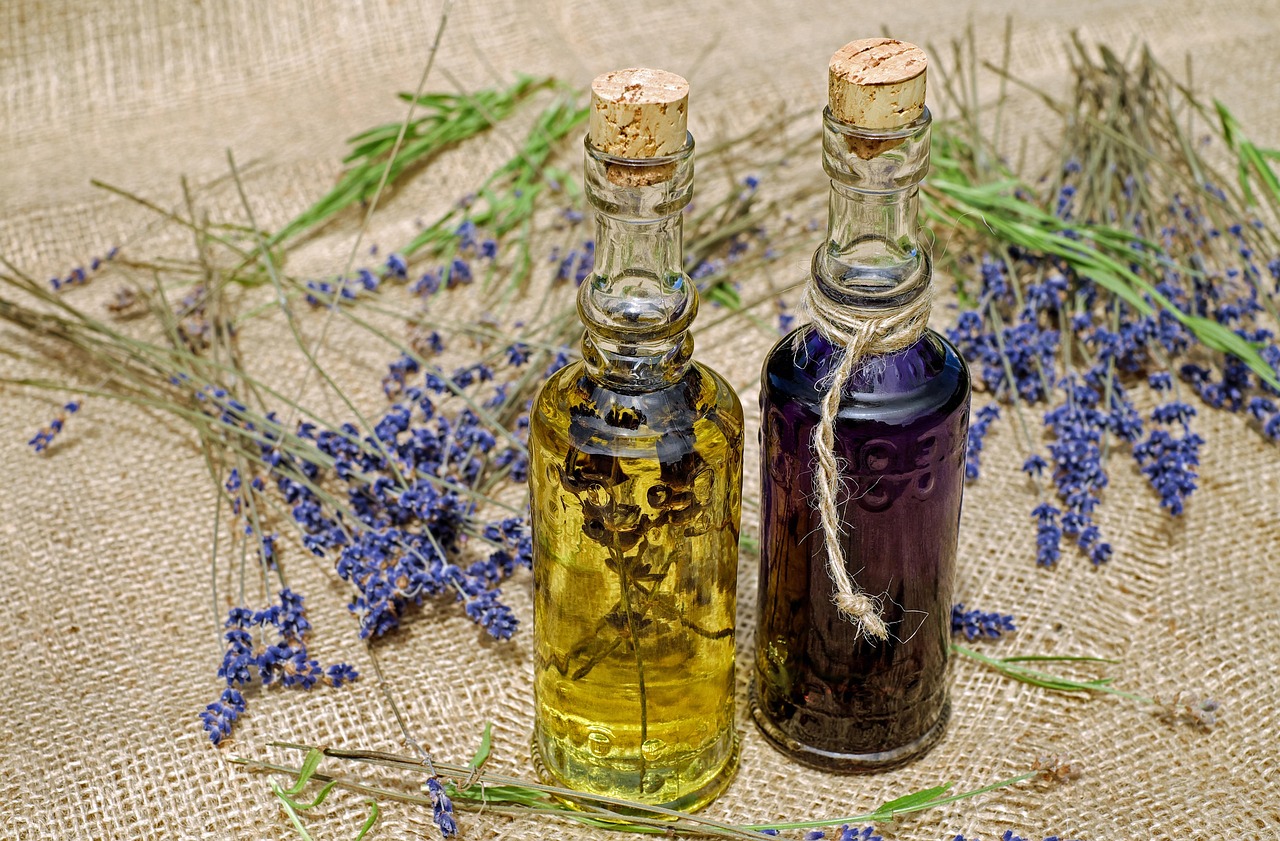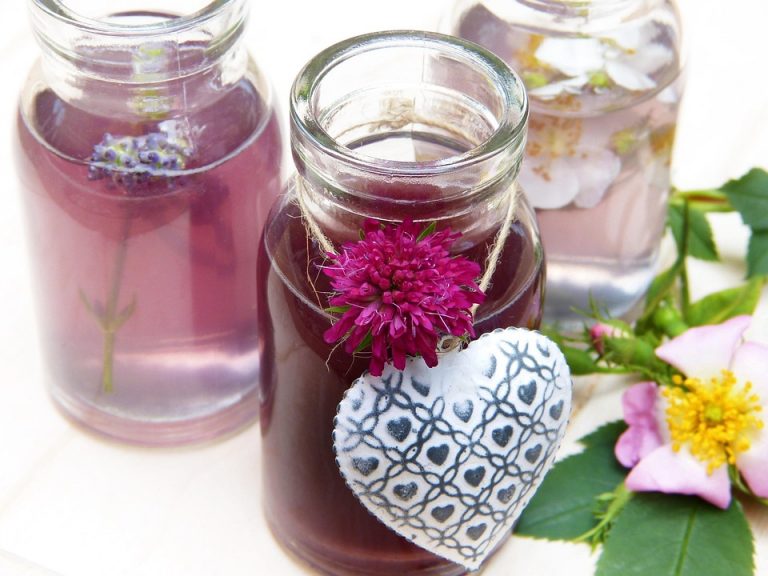Did you know that the scent of lavender has been cherished for centuries, not just for its calming aroma but also for its skin-loving properties? I remember the first time I tried lavender oil in my skincare routine—I was skeptical at first. Can a little bottle of essential oil really make that much of a difference? Spoiler alert: it can! Lavender oil isn’t just a pretty fragrance; it’s a powerhouse for achieving glowing skin. Let’s dive into five ways this delightful oil can transform your skincare routine.
Contents
1. Natural Antioxidant Properties
Lavender oil is packed with antioxidants that help combat free radicals, those pesky molecules that can lead to premature aging. Research indicates that antioxidants can play a crucial role in maintaining skin health by neutralizing oxidative stress (Mason et al., 2020).
How It Works:
When applied topically, lavender oil can help protect your skin from environmental stressors like pollution and UV rays. This is particularly important if you live in a city or spend a lot of time outdoors. The antioxidants in lavender oil can help keep your skin looking youthful and vibrant.
Pros and Cons:
- Pros: Natural, gentle on the skin, and effective in reducing signs of aging.
- Cons: Some people may experience irritation or allergic reactions, so patch testing is always a good idea.
Personal Note:
I’ve noticed a significant difference in my skin’s texture since adding lavender oil to my routine. It feels softer and looks more radiant, especially after a long day outdoors.
2. Anti-Inflammatory Benefits
Lavender oil is renowned for its anti-inflammatory properties. If you suffer from conditions like acne, eczema, or psoriasis, this oil might just be your new best friend. A study published in the Journal of Dermatological Treatment highlighted lavender oil’s ability to reduce inflammation and promote healing (Hajhashemi et al., 2018).
How It Works:
The soothing compounds in lavender oil can help calm irritated skin, reducing redness and swelling. This makes it an excellent choice for post-sun exposure or after a particularly harsh skincare routine.
Pros and Cons:
- Pros: Helps soothe irritated skin and promotes healing.
- Cons: While generally safe, overuse can lead to skin sensitivity.
A Quick Tip:
I like to mix a few drops of lavender oil with my moisturizer after a day in the sun. It feels like a mini spa treatment!
3. Balancing Oily Skin
If you have oily skin, you might think that oil is the enemy. But lavender oil can actually help balance your skin’s oil production. According to a study published in Phytotherapy Research, lavender oil can regulate sebum production, which is crucial for keeping your skin clear and healthy (Choi et al., 2016).
How It Works:
Lavender oil works by signaling your skin to stop producing excess oil. When your skin is balanced, you’re less likely to experience breakouts and clogged pores.
Pros and Cons:
- Pros: Balances oil production, which can help prevent acne.
- Cons: Results can vary; some may find it too heavy for their skin type.
Real Talk:
When I switched to lavender oil for my oily skin, I was amazed. It didn’t feel greasy; instead, it left my skin feeling fresh and balanced.
4. Promotes Wound Healing
Lavender oil has been shown to speed up the healing process for minor cuts, burns, and even insect bites. A study in Evidence-Based Complementary and Alternative Medicine found that lavender oil can promote skin regeneration and reduce scarring (Khan et al., 2019).
How It Works:
The oil’s antimicrobial properties can help protect wounds from infection, while its anti-inflammatory benefits promote faster healing.
Pros and Cons:
- Pros: Speeds up healing and reduces scarring.
- Cons: Not a substitute for medical treatment for more serious wounds.
My Experience:
I once had a small burn from a kitchen mishap. Applying diluted lavender oil helped soothe the area and reduced the redness significantly.
5. Stress Relief and Skin Connection
Let’s not underestimate the mind-skin connection. Stress can wreak havoc on your skin, leading to breakouts and dullness. Lavender oil is famous for its calming properties, which can help reduce stress and, in turn, improve your skin’s appearance.
How It Works:
When you inhale lavender oil, it can lower cortisol levels, the hormone associated with stress. Lower stress levels can lead to clearer, healthier skin.
Pros and Cons:
- Pros: Soothes the mind, which can lead to better skin health.
- Cons: Results may take time; it’s not an overnight fix.
A Fun Ritual:
I often diffuse lavender oil in my room while doing my skincare routine. It’s a simple way to create a calming atmosphere that benefits both my mind and my skin.
FAQs
How do I use lavender oil for my skin?
You can mix a few drops of lavender oil with a carrier oil (like jojoba or coconut oil) and apply it to your skin. Alternatively, add it to your moisturizer or use it in a DIY face mask.
Is lavender oil safe for all skin types?
While lavender oil is generally safe, those with sensitive skin should perform a patch test first. If irritation occurs, discontinue use.
Can lavender oil help with acne?
Yes, lavender oil’s anti-inflammatory and balancing properties can help reduce acne and prevent future breakouts.
How often should I use lavender oil on my skin?
You can use it daily, but start with a few times a week and monitor how your skin reacts.
Conclusion
Lavender oil is more than just a lovely fragrance; it’s a versatile skincare ally that can help you achieve glowing skin. From its powerful antioxidant properties to its ability to soothe irritation and balance oil production, this oil deserves a spot in your skincare routine.
Of course, everyone’s skin is unique, and what works wonders for one person might not be the same for another. So, as you explore the benefits of lavender oil, listen to your skin and adjust your usage accordingly.
And remember, this article is for educational purposes only and is not a substitute for professional medical advice. Always consult a qualified healthcare provider before making changes to your health routine.
References
-
Mason, R. S., et al. (2020). Antioxidant properties of lavender essential oil. Journal of Essential Oil Research. Retrieved from https://www.tandfonline.com/doi/full/10.1080/10412905.2020.1729655
-
Hajhashemi, V., et al. (2018). The effects of lavender oil on skin inflammation: A review. Journal of Dermatological Treatment. Retrieved from https://www.tandfonline.com/doi/abs/10.1080/09546634.2018.1459349
-
Choi, J. H., et al. (2016). Regulation of sebum production by lavender oil. Phytotherapy Research. Retrieved from https://onlinelibrary.wiley.com/doi/abs/10.1002/ptr.5586
-
Khan, M. I., et al. (2019). Lavender oil promotes wound healing in rats. Evidence-Based Complementary and Alternative Medicine. Retrieved from https://www.hindawi.com/journals/ecam/2019/9636971/
Get Your FREE Natural Health Guide!
Subscribe now and receive our exclusive ebook packed with natural health tips, practical wellness advice, and easy lifestyle changes, delivered straight to your inbox.




